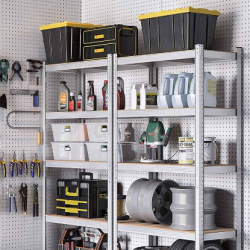Preparing for a demolition
Whether you’re destroying a house that is beyond repair or building a brand-new structure, demolition can feel like a daunting prospect. Not only can the project include large-scale work, but dismantling means having a full professional crew and heavy equipment on the ground with you for a period of time.
For most people considering demolition, they have never before seen such a project, let alone overseen one. Being preparation prior to the demolition of housing can ensure you feel happier about the process while an experienced team get to work.
Choosing the right demolition crew
Regardless of the scale of your demolition, this project is a significant one that should not be done without proper assistance. Unless you have an extensive background in the demolition of the type you’re planning, you do not have to plan it on your own.
Instead, hire a demolition crew that has the proper license and experience for your type of project. You may not know exactly what the crew qualification requirements are until after a home inspection.
Pre-demolition inspection
Construction projects are seldom as straightforward as they appear. Often, homeowners find themselves surprised by the amount of their contingency budget is used up during this phase. A home inspection before demolition can help minimize the shock of what you have to deal with after structures start getting knocked down.
A home inspector can help you determine whether you will need to prioritize finding a demo crew with a license for a dangerous move. Many older homes have asbestos, which must be removed and disposed of only by certified professionals. For Demolition Bristol Contractors, visit a site like David Horton Contractors, a leading Demolition Bristol Contractors.
In addition, checks can help you decide which type of demolition method is required. For example, in a house that is likely to have asbestos, the demolition crew might do some deconstruction to find and eliminate asbestos before bringing in the bulldozers.
You may also want to consider disposal options offered by the crew before making the decision to hire. Many demolition materials can be recycled or resold rather than sent to landfills.
Removal and Storage
As a rule, whatever is not included in the scope of work for the demolition should be removed from the site. In most cases, this rule means that you have to consider staying with a friend, relative or in a hotel until demolition is completed even if your home will remain intact enough that you can stay there.
Making alternative housing arrangements reduces discomfort, risk of injury and potential delays during the project. In addition, you have to place objects that would normally be in your yard in storage until after the demolition. Move your vehicle, outdoor furniture and children’s toys.
Working with others
While dismantling takes place on your property, there could well be community impacts. You may need frequent contact with home insurance companies, utility companies and the local council for everything to progress smoothly.
For example, you may be responsible for securing permission to shut off utility lines before digging. Be sure to clarify which tasks you have to handle yourself and which will be borne by the demolition company demolition before the project begins.




